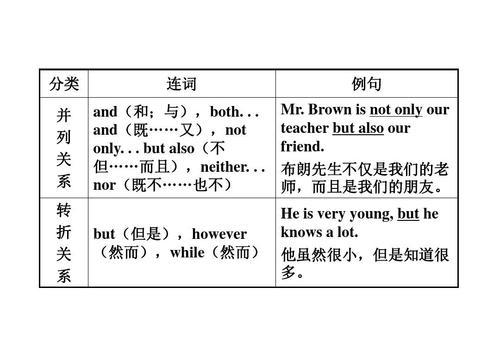英语中表示对比的连词包括"but"、"however"、"although"、"whereas"和"on the other hand"。这些连词在转折、对比和强调中起着重要的作用,能够帮助更好地表达自己的意思。

1. but
but是最常用的表示对比的连词之一,通常用于转折、对比和强调。例如:“I want to go to the party, but I have a lot of homework to do.”(我想去参加聚会,但是有很多作业要做。)
2. however
however也是常用的表示对比的连词之一,通常用于转折和对比。和but类似,它可以用于连接两个相反的想法。例如:“I wanted to buy the dress, however, it was too expensive.”(我想买那件连衣裙,但是太贵了。)
3. although
although表示的是一种转折,它用于引出一个情况或事实,然后表达另一种相反的情况或事实。例如:“Although it was raining, we still went for a walk.”(虽然下雨了,但我们还是去散步了。)
4. whereas
whereas用于比较两个不同的事物或情况,强调它们之间的差异。例如:“I like to eat fruit, whereas my sister prefers vegetables.”(我喜欢吃水果,而我妹妹则喜欢吃蔬菜。)
5. on the other hand
on the other hand也是用于表示对比的连词,通常用于引出一个相反的观点或事实。例如:“I like to stay up late, but on the other hand, I know I need to get enough sleep.”(我喜欢熬夜,但另一方面,我知道我需要充足的睡眠。)

